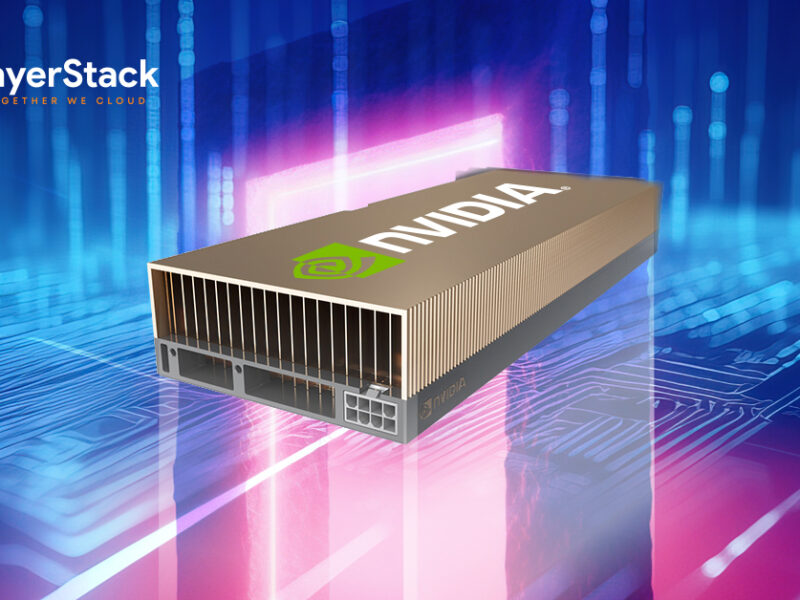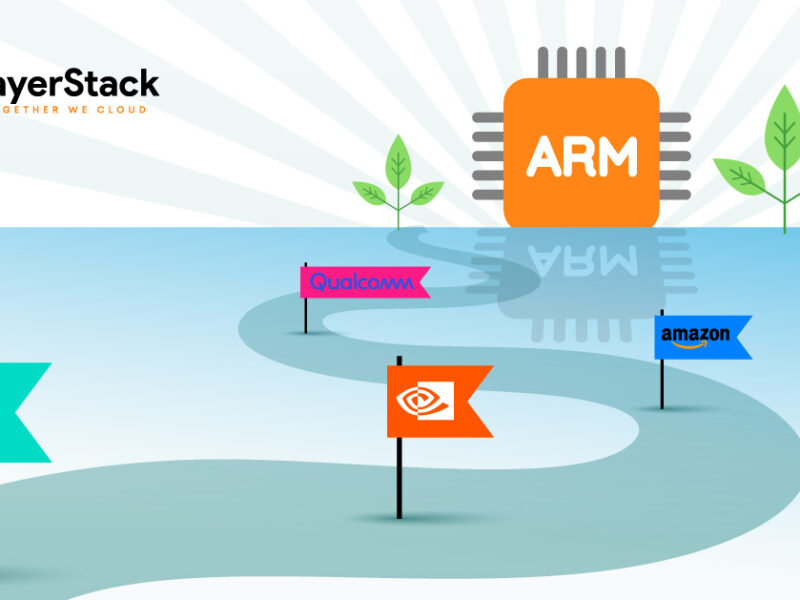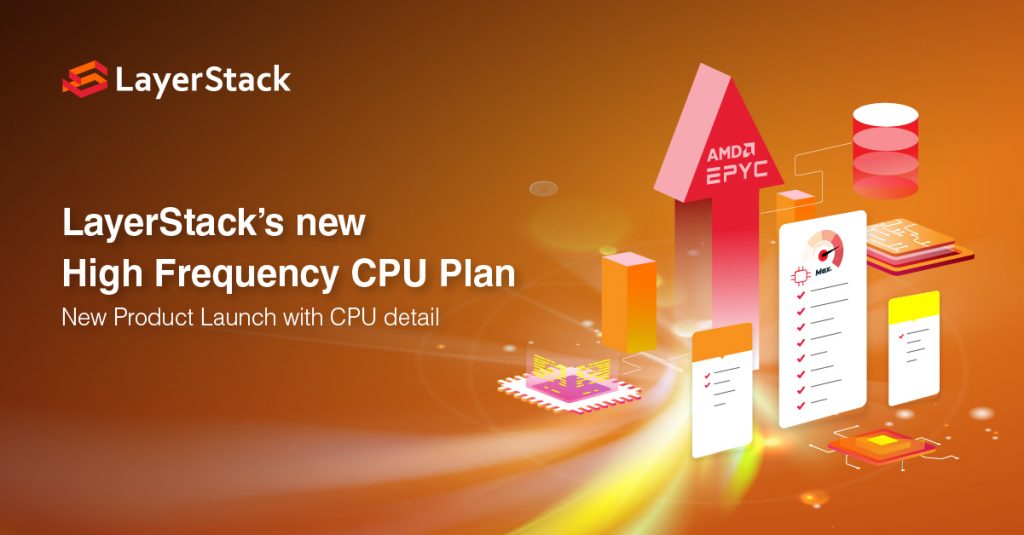
LayerStack is coming up with an exciting, one-of-a-kind High Frequency CPU Server Plan unmatched in the cloud-computing industry. Applications that depend upon higher computing power, faster network speeds, and lightning access to storage infrastructure will significantly benefit from the plan. The plan utilizes high-rating CPU – the AMD EPYC 7742 which boasts a superior performance with 64 cores and 128 threads. It comes with a high base clockspeed of 2.25 GHz, capable of a turbo boost up to 3.4 GHz. The 2nd generation EPYC processor is based on Zen 2 microarchitecture, with a TDP of 225 W and built on the 7 nm process technology.
Uses of High Frequency CPU Server

High Frequency CPU Servers handle high-performance computing (HPC) workloads easily due to their superior clock speeds, large bandwidth, and fast I/O transfers. The ability to perform quadrillions of calculations is immensely useful in data-sensitive applications, hyper-converged infrastructure, increased VM density, and processing complex calculations with humongous data in real-time.

The EPYC server series provides the computing backbone for Google Cloud, Amazon Web Services, and Microsoft’s Azure services. Research labs use clusters of high-frequency CPU servers for predicting and tracking storms and testing new products. Live event streaming, rendering mind-blowing special effects, and 3D imaging need powerful CPUs. Artificial intelligence and machine learning use HPC in applications ranging from detecting credit card fraud to teaching self-driving vehicles. Real-time stock trends and automated trading platforms use high-frequency servers extensively.
Comparison of CPU’s used by LayerStack and other top cloud providers.
LayerStack uses AMD’s powerful EPYC series processors in all its plans. According to Passmark’s CPU benchmarking test, LayerStack CPUs’ score is significantly higher than the CPUs selected by most of the top cloud providers, we have picked a few providers and compare the CPU efficiency.
*The comparison below is for reference purpose only, the information may vary due to different cloud server deployment, LayerStack bears no responsibility for any listed information.
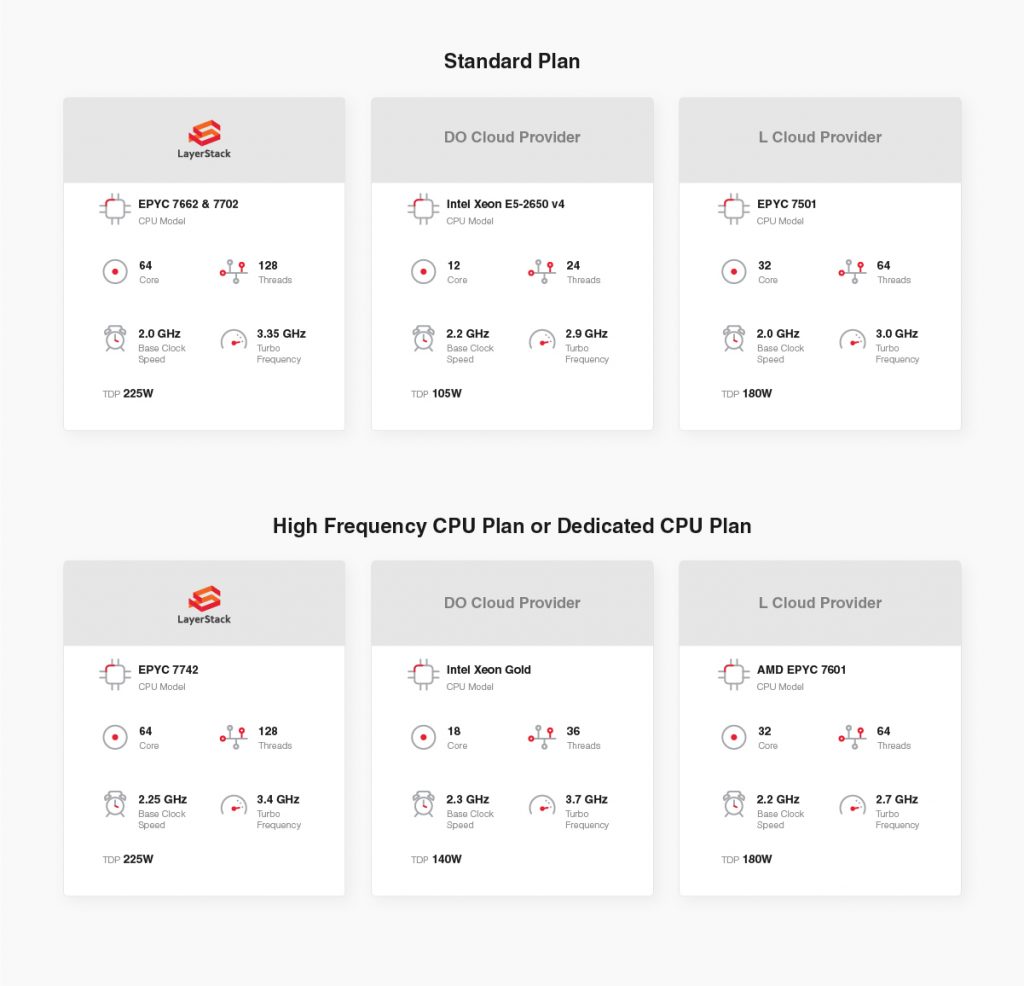
LayerStack
The Standard Plan uses AMD EPYC 7662 and 7702, with clockspeeds between a base 2.0 GHz and max turbo 3.35 GHz. They both have 64 cores and supports 128 threads simultaneously, with a TDP up to 225W.
The High Frequency CPU Plan uses the AMD EPYC 7742 which is highly scored by PassMark Software.
DO Cloud Provider
The Standard Plan uses Intel Xeon E5-2650 v4, with clockspeeds between a base 2.2 GHz and turbo 2.9 GHz. Launched in Q2 2016, the Xeon has 12 cores and supports 24 threads, with a TDP of 105W.
The CPU-optimized Plan uses Intel Xeon Gold, with clockspeeds between a base 2.3 GHz and turbo 3.7 GHz. Launched in Q4 2017, it has 18 cores and supports 36 threads, with a TDP of 140W.
L Cloud Provider
The Standard Plan uses both Intel Xeon E5-2697 v4, with clockspeeds between a base 2.3 GHz and turbo 3.6 GHz, and AMD EPYC 7501 between 2.0 GHz and 3.0 GHz. The Xeon has 18 cores and supports 36 threads, while the 7501 has 32 cores and supports 64 threads.
The Dedicated-CPU Plan uses AMD EPYC 7601, with clockspeeds between a base 2.2 GHz and turbo 2.7 GHz. Launched in Q4 2017, the 7601 has 32 cores and supports 64 threads, with a TDP of 180W.
Comparison Result
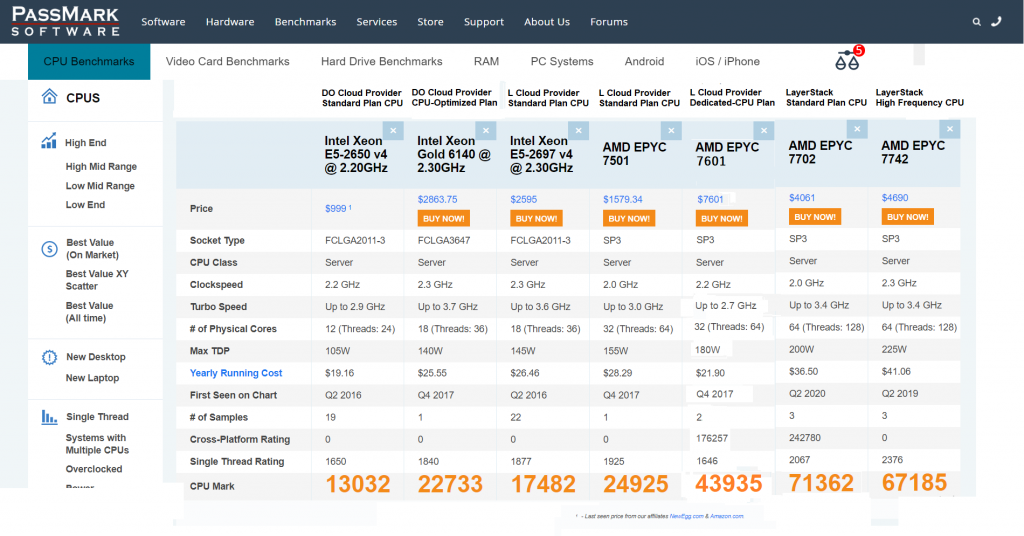
LayerStack’s EPYC 7702 and 7742 have the highest CPU Mark scores, followed by L Brand’s EPYC 7601 and 7501. DO Brand’s Xeon E5-2560 scores the lowest.
* Let us know your comments and suggestions on LayerStack Community.

